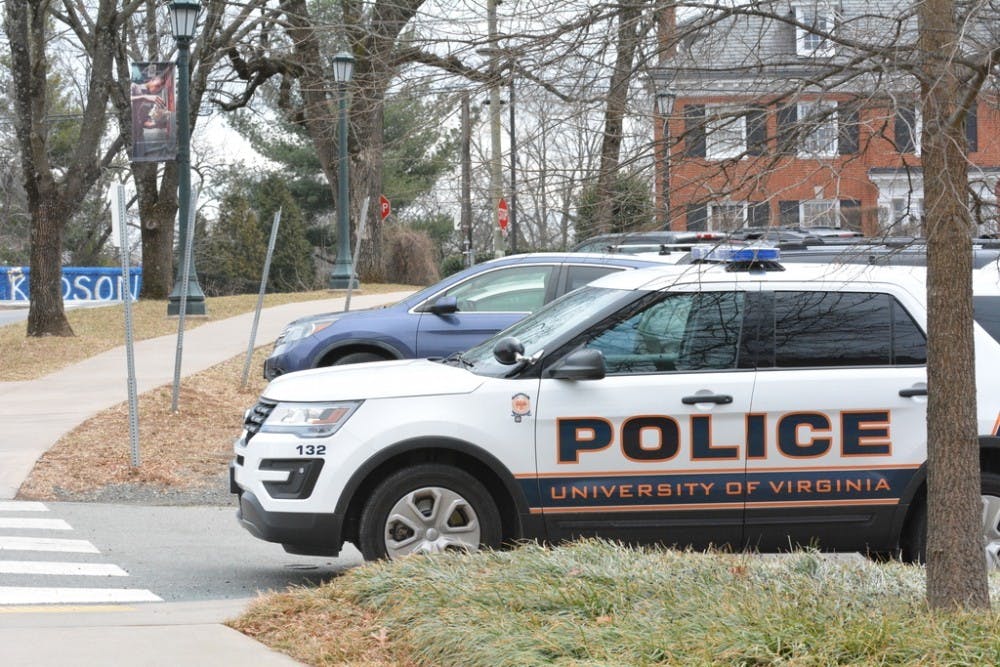University Law alumnus Jonathan Perkins returned to Grounds last month to speak at an event hosted by the Black Law Students Association and reflected on his personal experiences with racial profiling at the University of Virginia. In April 2011, Jonathan Perkins — a third-year law student at the time — was a victim of flagrant police misconduct when walking home from the Corner. Perkins wrote a letter to the Virginia Law Weekly three weeks later describing the incident, claiming that he was stopped, searched and harassed by two University police officers who said he ‘fit the description’ of a person they were looking for. After an investigation into the incident, the University Police Department announced that Perkins had recanted his testimony, claiming he fabricated the story to "bring attention to the topic of police misconduct.” In 2017, however, Perkins told The Cavalier Daily that he was pressured by an FBI agent to recant his testimony. As a community, we must recognize and eliminate the deeply embedded racial biases which continue to target minorities and obstruct justice.
After Perkins recanted his testimony, the UPD did not press charges against him, fearing that doing so would prevent victims of police misconduct from coming forward. Although the Honor Committee acquitted Perkins of any honor charges and allowed him to receive his law degree, his exoneration did not completely resolve the issue.
Although the FBI’s involvement in Perkins’ recantation was discussed during his honor trial, the information was only released to the public in 2017. After gaining significant media attention, Perkins’ allegedly fabricated story was published by several major news outlets — including the Washington Post and The Atlantic — subjecting him to public scrutiny and tarnishing his reputation for years to come. Even The Cavalier Daily’s Managing Board wrote a highly critical editorial about Perkins’ acquittal, arguing that his exoneration shamed the integrity of the University’s Honor System.
Last month, Perkins submitted a guest column to The Cavalier Daily in which he discussed the need to reevaluate the role of racial bias within the University’s Honor System. In the column, Perkins describes his honor trial, recounting how “the prosecution and the jury panel asked questions and made arguments clearly indicating a lack of experience or thoughtful perspective with respect to race.” Considering this incident occurred just seven years ago, it is clear that the UPD, the Honor Committee and the University administration must do more to combat the institutionalization of racial bias within our community.
Jonathan Perkins is not the only black student at the University to have experienced police misconduct in recent years. In 2015, Martese Johnson — a third-year student and vice chair of the Honor Committee at the time — was violently arrested by Alcohol Beverage Control agents after being turned away from Trinity Irish Pub. Though his intoxication charges were dropped and he was recently awarded a $249,950 settlement, his life — just like Perkins’ — will undoubtedly continue to be affected by this incident for years to come.
Charlottesville and the University community have taken measurable strides to address their racist legacies. The City has renamed public parks, the University administration is taking steps to build a Memorial to Enslaved Laborers and the University community is engaging in a debate over the ethics of Alderman Library’s namesake, it is clear that the University and Charlottesville communities are taking steps in the right direction toward a better and brighter future. These efforts, though commendable, are not enough. Rather than solely focus on racism in the abstract, the administration must focus on the tangible, institutionalized racism that impedes justice for racial minorities on a daily basis.
The Honor Committee must reevaluate its commitment to the University’s anti-discrimination policies. In particular, Honor must seek greater diversity of its members and implement training sessions for student jurors so that future cases have a chance at being free from racial bias. Our community must also seriously address its perpetuation of police misconduct. Not only must the University and Charlottesville Police Departments do more to hold accountable officers who have formerly engaged in police misconduct, the departments must also implement better training sessions to prevent such injustices from occurring in the first place.
In Perkins’ own words,“white people, particularly those in positions of power, must be willing to do the hard work of educating themselves and each other so that they might identify and address their own racial biases.” Only by advocating for institutional change and engaging in constructive conversation about these issues will the University and the Charlottesville community as a whole be able to reconcile with its racist history.
Audrey Fahlberg is an Opinion Columnist for The Cavalier Daily. She can be reached at a.fahlberg@cavalierdaily.com.







